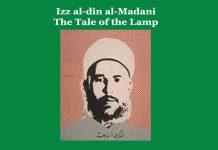Tayeb Salih | The Doum Tree of Wad Hamid
Tayeb Salih The Doum Tree of Wad Hamid
Tayeb Salih’s Short Story ‘The Doum Tree of Wad Hamid’ — An Analytical Study
‘The Doum Tree of Wad Hamid’ is a Sudanese Arabic short story written by Tayeb Salih (1929-2009). It is a tale-like longer short story. In the story, there is a plot no doubt but it can hardly be called a short story as it has no logical structure, no fidelity. Blind faith, hardship in village life and supernaturalism are the main themes of the story. Through this story, the story-teller has portrayed the uncultured, uneducated, naive village people living in natural hardship with their primitive beliefs.
The story is told in the first person in the dramatic monologue method. The narrator is a village person who tell about their natural village life, and their beliefs to a foreigner. The narrator tells the foreigner that their village is a strange one where no foreigner can stay for more than two days. It is because the villagers are accustomed to living a life of hardship throughout the year. In the summer season, the villagers are afflicted with the flies. In winter they are infested by the sand flies. In autumn they are inflicted with the disease. The village is far from being gone under the modern facilities of life. The government is also indifferent to their plight. Then the narrator tells the story of the Doum Tree situated in the village on the bank of a river. It is a mysterious tree. Nobody knows who planted it, but there is a story rounding the tree that once there was a very pious man named Wad Hamid who had been a servant to a very rich but wicked man. One night he fled from his master and all the night he spent praying to God. He died there and was buried under the Doum tree. Since then people believed that the tree had some healing power. The narrator goes on to tell more that once a village woman, who was suffering from fever for some months, went under the tree and said, “O Wad Hamid, I have come to you to seek refuge and protection- I shall sleep here at your tomb and under your Doum tree. Either you let me die or you restore me to life. I shall not leave here until one of these two things happens.” The next morning she returned home being healed. Thus there is a touch of supernaturality in the story.
The narrator is the main character of the story. He is a representative of the uncultured, uneducated naive village people. He believes in supernaturalism and he is accustomed to living the hardship of life. The listener is silent throughout the story. He is one among the town folks. He is unacquainted with the lifeways of the village.
In narrating the story the author has employed the Subjective and Dramatic Monologue Method and narrates his story in the first person.
The story, in Structure, is not a coherent one as the logical stages of the structure of a good short story are not maintained in the story.
The Setting of the story is also weak. The author has failed to give a realistic as well as a reliable picture of the surroundings where the event of the story takes place.
The author has ignored an important component element of a good short story and that is Dialogue. There is some use of dialogues in the story ‘The Doum Tree of Wad Hamid’ but they have failed either to lead the story ahead or to reveal the inner feelings or motives of the characters.
The Philosophy of Life is also found in the story. The author Tayeb Salih has expressed his philosophy of life indirectly that uncultured and uneducated people are naive no doubt but they are averse to reason also.
The Language of the story ‘The Doum Tree of Wad Hamid’ is simple and easy to comprehend.
In maintaining the Qualities of a good short story as —unity of purpose, brevity, spontaneity, and universality the author has failed lamentably.
In Length, it is a longer short story and can be called a novella.
The story fails to be a story of any grade because of the author’s senselessness of the component elements of a short story as a genre of independent prose literature. 0 0 0
Tayeb Salih ‘The Doum Tree of Wad Hamid’
Books of Literary Criticism by M. Menonimus:
- World Short Story Criticism
- World Poetry Criticism
- World Drama Criticism
- World Novel Criticism
- World Essay Criticism
- Indian English Poetry Criticism
- Indian English Poets and Poetry Chief Features
- Emily Dickinson’s Poetry-A Thematic Study
- Walt Whitman’s Poetry-A Thematic Study
- Critical Essays on English Poetry
- Tawfiq al-Hakim’s Novel: Return of the Spirit-An Analytical Study
- Tawfiq al-Hakim’s Novel: ‘Yawmiyyat Naib Fil Arayaf’-An Analytical Study
- Analytical Studies of Some Arabic Short Stories
- A Brief History of Arabic Literature: Pre-Islamic Period (500 AD-622 AD)
- A Brief History of Arabic Literature: Early Islamic Period (622 AD-661 AD)
- Reviews on William Shakespeare’s Works
- Reviews of Charles Dickens’ Works
- Reviews of John Milton’s Literary Works
- Reviews of Some Iconic Travelogues
- Shakespeare’s Sonnets-Critical Studies
- Analytical Studies of Selected Poems of Sarojini Naidu
- Analytical Studies of Selected Poems of Rabindranath Tagore
- Analytical Studies of Selected Indian English Poems
- Reviews of Selected Motivational Books
- Origin Evolution & Functions of Literature
- Essays on Shakespeare and His Time …











